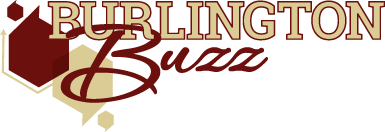Burlington School District Performance Outpaces State, Reinforces Curriculum Changes
While Burlington students generally scored higher than the state average, overall state scores have yet to recover from the pandemic

At the October 14 School Committee meeting, Burlington Public Schools Assistant Superintendent Lisa Chen provided an update on student performance and growth, focusing on the district's ongoing progress monitoring assessments and the state's standardized test, MCAS, whose scores were released earlier this month.
Some key terms for interpreting test performance:
- Absolute performance: Percentage mastery based on all questions asked
- Student growth percentile (SGP on MCAS): A measure that compares a student's growth to that of other students with the same testing history; because of the nature of this measure, the state's SGP normalizes to around 50
- Screener: An evaluation that identifies at-risk students
- Progress monitoring assessment: A test that is given multiple times to gauge student progress over time
- Summative assessment: A test that is given at one point in time, at the end of a unit or a year
- Norm-referenced: A test that compares student performance to other students taking the same test
- Criterion-referenced: A test that measures student performance against a standard or fixed metric, like the state standards for education
The district uses the iReady progress monitoring assessment at multiple points in the year to evaluate student performance in both math and English language arts (ELA) for grades 1-9, as well as the DIEBLS literacy screener in grades K-6. The state's assessment is summative, given once per year at the end of the school year. All these assessments are both norm- and criterion-referenced, identifying student performance with respect to the standards and with reference to the performance of their peers.
English-Language Arts Performance Shows Promise While Validating New Curriculum Direction
A comparison of performance on DIEBLS and iReady in grades K-5 shows increased performance at the end of the 2024-25 school year compared with at the beginning of the year, while falling just a few points short of the district's goal of 80% meeting or exceeding expectations.
On average, BPS students exceeded the state average on ELA MCAS, and most grades had an average SGP of above the state's average of 50.
However, the percentage of students meeting or exceeding expectations remains mostly in the 50% range, suggesting there is more work to do, and in addition Chen identified areas for improvement, especially in writing, which validated the district's choice to adopt a new curriculum last year.
The CKLA curriculum for grades K-5 was chosen with input from parents, teachers, and school administrators last year, and its implementation began at the beginning of the 2025-26 school year with professional development sessions for teachers scheduled regularly throughout the year. The curriculum, said Chen, emphasizes vocabulary and writing, and while the impacts of the curriculum on student learning won't be immediate, Chen expects student performance on both the progress monitoring assessments and on MCAS to improve over time.
A new curriculum for grades 6-8 is also being investigated, and Chen correlated changes made at the high school level with improved performance on MCAS this year over last.
Math Performance Above State Average Amid Course Pathway Adjustments
Student performance on the math MCAS tells largely the same story, with Burlington's performance exceeding that of the state overall despite a dip in the number of students meeting or exceeding expectations at grade 4.
At the middle school level, grade 7 scores were improved over last year in both absolute scores and SGP, while Chen identified statistics and probability as an area where the district needs to look at curriculum and make some adjustments.
At the high school level, while student performance surpasses state performance, the growth percentiles are around 10% lower and have been for several years. Chen said she believes the new mathematics course pathways the district has been working on – which will offer Algebra I instruction for students who are ready for it in 8th grade – will reinforce student skills by the time they get to 10th grade, enhancing performance on that assessment.
Science Instruction Looks Ahead to New Performance-Based Assessment
Science MCAS is given in grades 5 and 8, each assessing content from three years of science instruction, and the biology MCAS is given in grade 10.
Both 5th and 8th grade groups performed above the state average in science MCAS. Chen praised the work of the science curriculum coordination team, saying they're laying the groundwork for students to demonstrate mastery via an updated, performance-based assessment beginning in 2027. Chen said the test would emphasize reading and comprehending analytical text and real-world skills.
The 10th grade students fell below the state average in all categories; committee members, along with Superintendent Dr. Eric Conti identified several possible sources for the issue, including the fact that 2025 was the first year students knew the test wasn't a graduation requirement. Chen also pointed to possible issues with the curriculum but didn't want to give a definitive cause, saying, "I want to dig deeper and have a solution report back to you."
There was a civics assessment given for the first time last year, and Burlington again outperformed the state average.
High School Graduation Requirements Still Being Decided
In light of voters removing MCAS as a graduation requirement, district and high-school administrators are discussing what graduation requirements will look like. "Classroom grades are going to be the new standard moving forward," said Conti.
Chen said, "We're working on a grading policy that's more growth-oriented that gives greater ownership for students when it comes to learning by providing more feedback."
District Will Continue Identifying Curriculum Gaps
Dr. Chen outlined a number of priorities for further work, including:
- Reviewing data with district instructional teams and school-based teams
- Comparing MCAS and ACCESS data to identify English learners needing additional support
- Enhancing science standards in CKLA and math for K-3
- Continuing evidence-based reading and math interventions
- Analyzing data with administrative teams to identify curriculum gaps
- Working toward a more growth-oriented grading policy at the high school level
Work is Ongoing, Progress Lags Effort
Overall, students in Burlington Public Schools showed performance above the state average on MCAS. However, average performance across the state is still not back up to pre-pandemic levels, and the effects of pandemic still linger.
Members of the School Committee expressed appreciation for the thorough look at student achievement across the district. Member Meghan Nawoichik summed up her thoughts: "We've made a lot of great changes this year in our math program and by adopting CLKA, and I think over the years we'll see the long term benefits of that come through in our MCAS scores... I think we see it in DIEBLS and iReady and some of the other ways that we are tracking students growth more often. I think that data is way, way more valuable than MCAS data."
You can see the full summary of MCAS performance at the DESE Profiles website.





